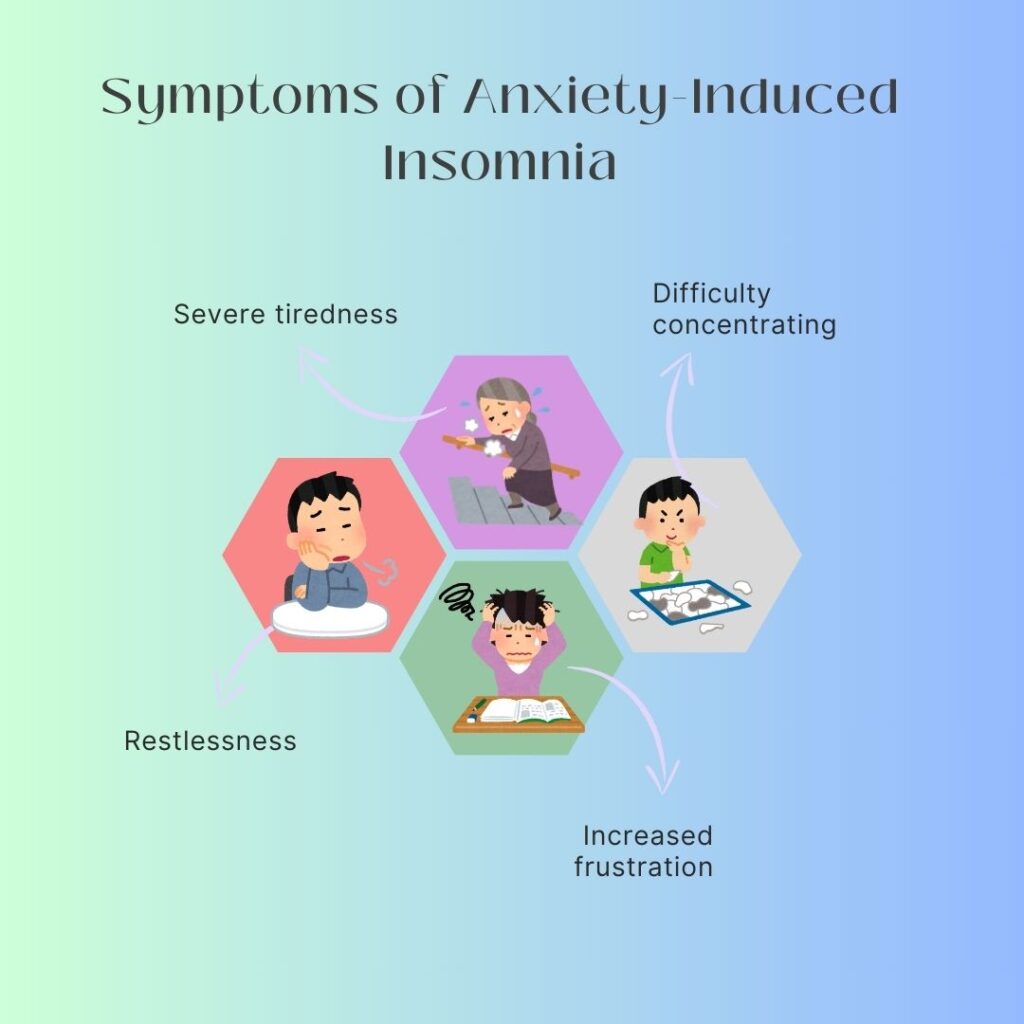What Connection Exists Between Insomnia and Anxiety?
Insomnia and anxiety have a highly interconnected relationship with each other; in many ways, they feed on each other and perpetuate one another in an awful cycle. Both can substantially impair daily living activities, ranging from physical health, mental well-being, and even the quality of life. Recognizing the interrelationship between the two is significant to identifying and improving sleep as well as addressing mental health management.

Can Anxiety Cause Insomnia?
Anxiety is a significant contributor to insomnia. Many patients with anxiety disorders experience hyperarousal, an excessive state of alertness that cannot relax and, therefore, interrupts the sleep process. This mental and physical restlessness can result in:
- Insomnia related to difficulty falling asleep: Continuous concern over daily events or future problems.
- Insomnia related to awakenings: Uncontrollable nighttime wake-ups.
- Insomnia related to early morning awakenings: The inability to fall back asleep after waking too early.
Common Symptoms of Anxiety-Induced Insomnia:
- Restlessness and irritability
- Muscle tension
- Difficulty concentrating
- Severe tiredness even after proper time in bed
- Increased frustration at the fact that one is unable to sleep
Can Insomnia Cause Anxiety?
Whereas anxiety can cause sleeplessness, the reverse is also true. Continuous sleep deprivation that comes with insomnia may increase cortisol levels; the body’s main stress hormone, thereby aggravating anxiety. As time goes by, it will create a vicious cycle where lack of sleep heightened anxious feelings, and increased anxiety creates an ability to disrupt sleep at night.
Cosequences of Insomnia on Mental Health
- Increased worrying about oversleeping and its effects on daily life
- Decreased coping efficiency with stress.
- Increased irritability and emotional dysregulation
- Greater risk of developing anxiety disorder or depression disorders
How to Differentiate Between Anxiety and Insomnia
A lot of connections exist between sleeplessness and anxiety, but each condition needs separate identification:
- Generalized anxiety is the primary disturbance: Concerns are not exclusively about sleep problems but also encompass other life situations.
- The main problem is insomnia: Concerns are directly related to sleep disorders, like inability to sleep or fears of how poor sleep will affect a person.
A doctor or a physician can provide a diagnosis and prescribe appropriate treatment.
How to Beat Insomnia and Anxiety
Improving the quality of sleep often overlaps with anxiety management. Addressing one condition may alleviate symptoms in the other area. Effective strategies include the following:
1. Cognitive Behavioral Therapy (CBT):
CBT is an effective treatment for both anxiety and insomnia:
- CBT for Insomnia (CBT-I): This treatment program involves identifying and altering those behaviours that interfere with sleep.
- CBT for Anxiety: This type of therapy helps prevent the automatic patterns of negative thinking and general worry.
2. Medication:
- For anxiety: Selective serotonin reuptake inhibitors
(SSRIs) or serotonin norepinephrine reuptake inhibitors
(SNRIs) - For insomnia: Anti-sleep medicines, melatonin, or prescription drugs, usually in conjunction with behavioural adjustments.
Consult a doctor to find the best treatment plan tailored to your needs.
3. Improve Sleep Hygiene:
Adopting healthy sleep habits can improve sleep quality and reduce anxiety:
- Maintain a consistent sleep schedule.
- Avoid caffeine and alcohol before bedtime.
- Create a relaxing bedtime routine (e.g., reading or taking a warm bath).
- Reduce screen time and exposure to bright lights before bed.
- Ensure a comfortable sleep environment (quiet, dark, and cool).
Takeaway
The connection between insomnia and anxiety is a two-way street, each condition exacerbating the other. Breaking this cycle must be incorporated with behavioural strategies, therapy, and if necessary, medication. To the extent that the roots and symptoms of these conditions are attended to, better sleep and better mental health are expected. Consulting a healthcare professional can serve as the first step toward recovery from these conditions when one suffers from anxiety and insomnia.